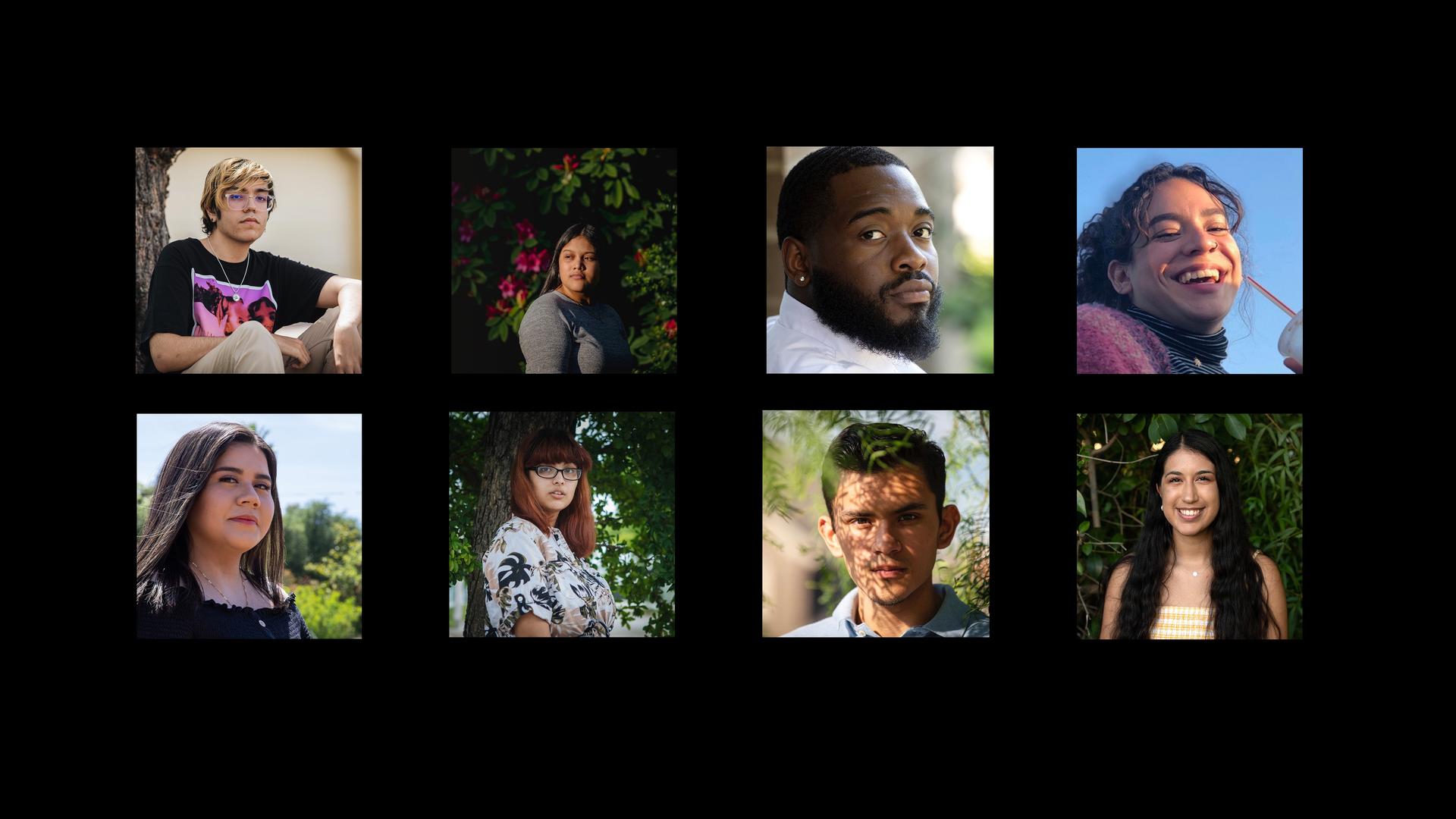We followed eight young Latino first-time voters all year. Here’s how they view the 2020 election.
This story is part of “Every 30 Seconds,” a collaborative public media reporting project tracing the young Latino electorate leading up to the 2020 presidential election and beyond.
Approximately every 30 seconds, a young Latino in the US turns 18 and becomes eligible to vote. Latinos could become the second-largest voting bloc in this presidential election after non-Latino whites, and that growth is largely driven by youth coming of age. Since the last presidential election in 2016, nearly 4 million Latinos have turned 18 — meaning their influence in the 2020 US presidential election could be significant.
The World has spent a lot of time thinking about those demographic shifts this year.
Back in January — before the coronavirus pandemic totally altered life globally and shook up the US election — we began a yearlong reporting series to explore this important slice of the electorate. We joined forces with reporters from public radio stations around the country: KERA in Texas, KJZZ in Arizona, KPBS in California, KUOW in Washington state, WABE in Georgia, WLRN in Florida and WUNC in North Carolina.
These partnerships led us to eight young Latinos across the country who were preparing to vote in their first presidential election. All were born in the US, most to immigrant parents. English is their primary language. Their families come from Mexico, Cuba, Honduras, Guatemala, Puerto Rico and elsewhere. One is a registered Republican, one leans conservative, one considers himself an independent and the rest lean Democratic.
Related: Meet the young Latino voters of ‘Every 30 Seconds’
At the start of 2020, the top issues for young Latino voters nationwide were gun reform, immigration, health care and the environment, according to María Teresa Kumar, president and CEO of Voto Latino. That’s what we heard from the first-time voters we were following, too.
Then in March, everything changed. The COVID-19 pandemic upended their lives — along with their political priorities.
“Now, in the midst of COVID-19, we’re seeing people really concerned with jobs,” she said. “Many of these young Latinos are part of the gig economy. They’re witnessing their parents who are part of the essential workforce who are not only not receiving a lot of the aid that the federal government is providing, but all of a sudden, they’re trapped when it comes to their own student loans and loan forgiveness.”
Indeed, Latinos have been disproportionately affected by the coronavirus and the economic recession it brought. Several of the young Latinos we followed saw their parents lose their jobs due to the pandemic. Some didn’t get to experience milestones like going to their proms or graduation ceremonies and started their first year of college remotely. All feel uncertain about the future.
Until May, none of the young Latinos we followed supported Democratic candidate Joe Biden. Many wanted to vote for Democratic candidates such as Sen. Bernie Sanders — whom they often call Tío Bernie — or Sen. Elizabeth Warren, both of whom dropped out of the race. Three considered voting for President Donald Trump.
But as the general election campaign progressed, the COVID-19 crisis worsened, and racial justice protests exploded across the US, each decided to support Biden — though days before the election, one wasn’t sure about voting at all.
As they cast their ballots, here’s what they want people to know about their views on Latino identity, education, the coronavirus, immigration, climate change and the presidential election:
Family backgrounds shape their politics in surprising ways
Yaneilys “Pink” Ayuso, 18, community organizer in Miami: “I’m probably the only communist in my family. But here’s the thing. My Cuban family came here for a better life to escape whatever they were facing on the island to still struggle here. In a way, my family’s history has shaped my politics — just not the way that they thought it would. All of my Cuban family is working-class people. I see it from an American perspective. And I think that that’s where the disconnect lies. For me, as a communist, like at the very root of the definition, resources should just be shared and distributed equally among people. I feel that in this system that we live in, too many people are working for the benefit of a few.”
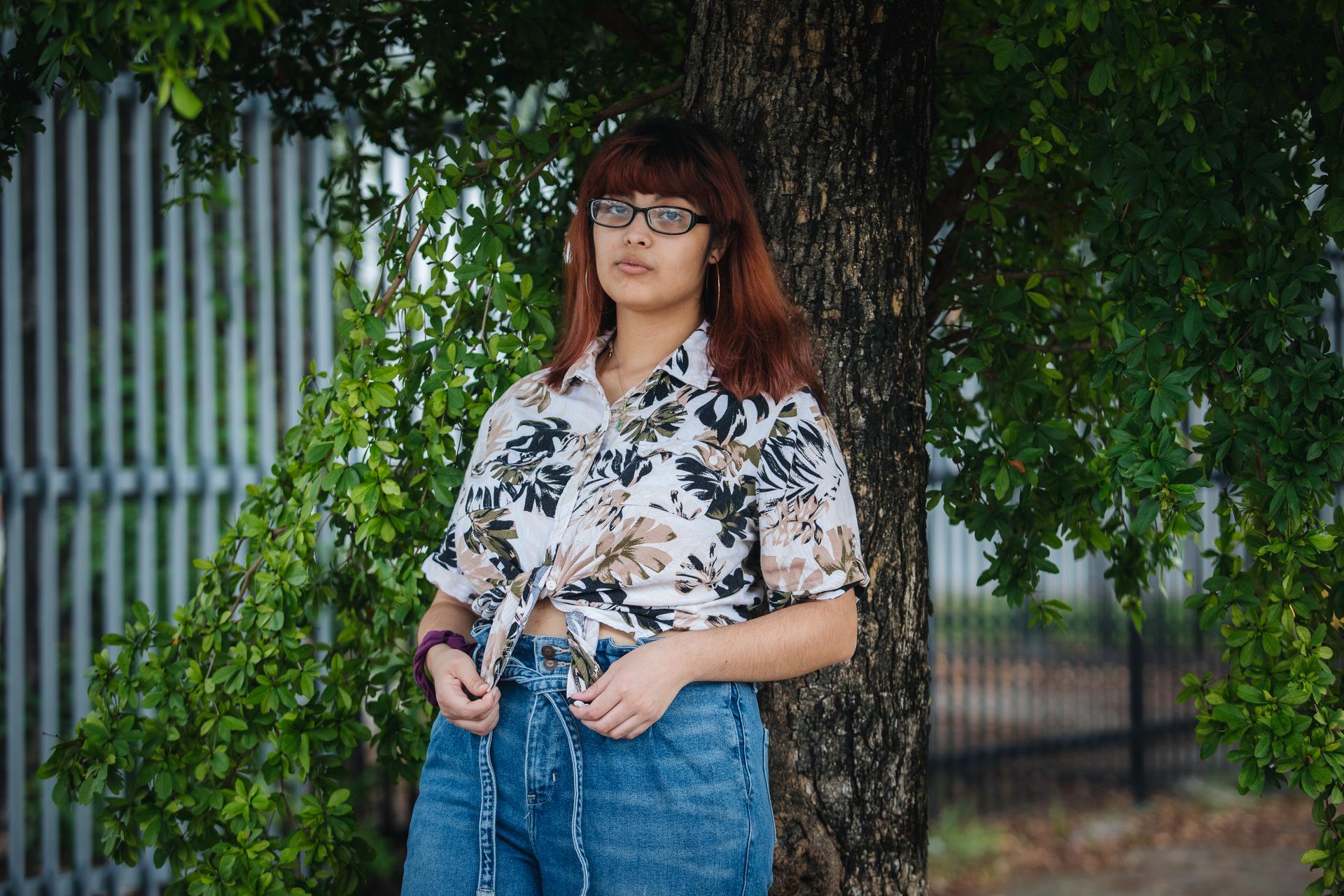
Izcan Ordaz, 18, college freshman in Keller, Texas: “I’m first-generation Mexican American. My dad came to the US when he was 16. I have everything, really, that my parents didn’t have. I have a nice home. My parents have a decent income. I would say that his story — that’s kind of been an additional fire under my feet. I do side with Republicans more on economic matters. What makes the American dream possible is the kind of free-market economy that we have. So, emphasizing self-reliance and freedom — not laissez-faire, not completely hands-off economics, but still enough freedom to grow a business or get your own education and to promote yourself, go out and get your own job.”
They prioritize access to education
Leticia Arcila, 20, studying dental hygiene in Atlanta: “I’m the first to actually go to college in my family. So, it was a very huge deal. My mother is a housekeeper. And since I was maybe 11, I would help my mom so she could clean villas or vacation houses in Florida. And she’d always tell me, ‘This is why you need to study. So you can get a better life and have things I was never able to give you.’ When we got the acceptance letter, she cried for maybe two days. She was so happy. I didn’t get accepted for FAFSA, so in the beginning, it was tricky to get aid. We had to pay for everything on our own. That was something we struggled with in the beginning. Now it’s just study, study, study.”
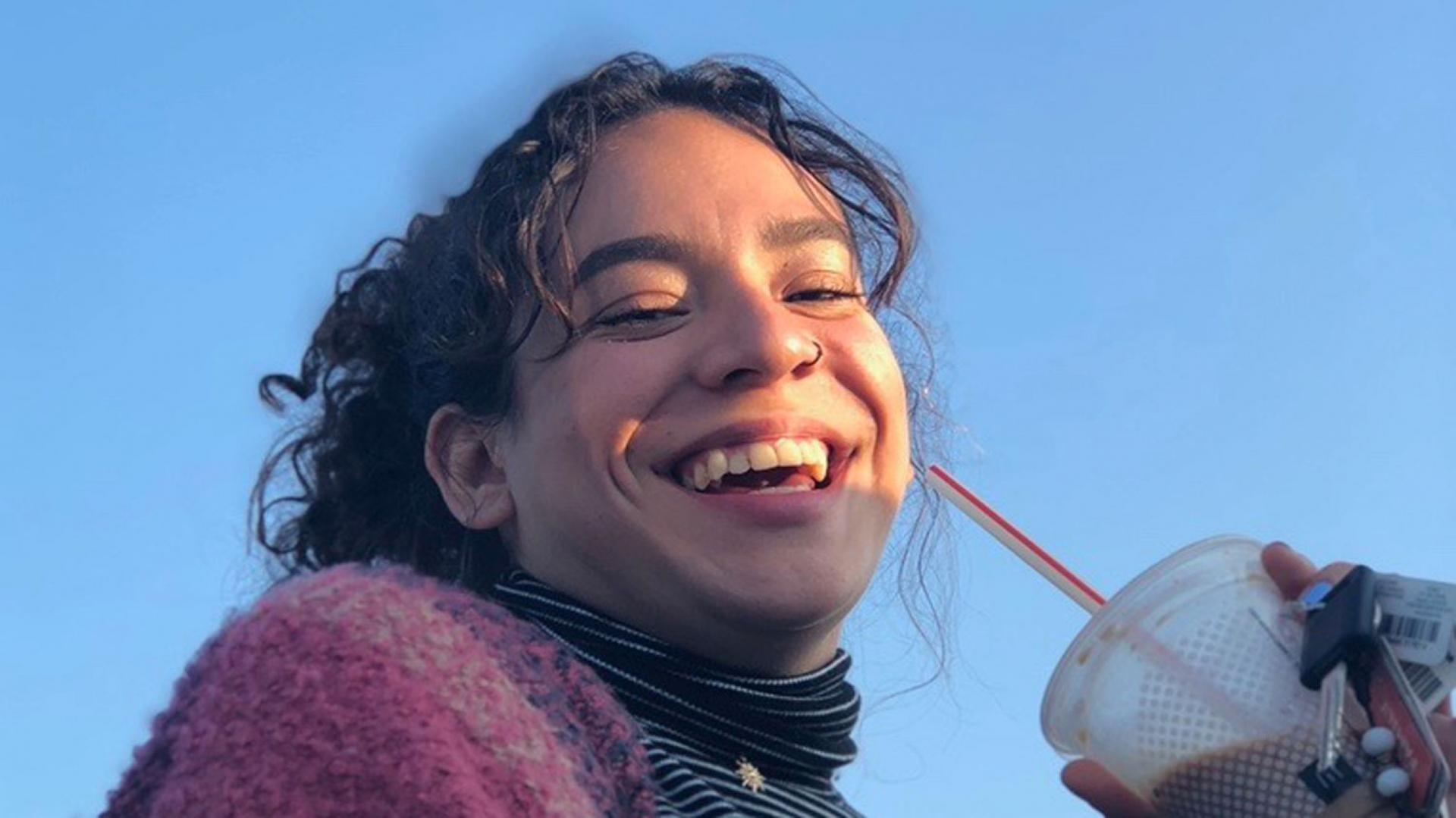
Brayan Guevara, 19, college sophomore in Greensboro, North Carolina: “I’m a teacher’s assistant. There’s a long line of teachers in my family, starting off with my great-grandmother. But I’ve found my own reason for teaching. Teaching means being a role model. It means bettering yourself to better future generations. With most schools [having] predominantly white middle-aged teachers trying to teach African American males, Hispanics — they simply can’t relate to them. I would like to see more funding going into schools. Joe Biden has said he’s going to triple the amount of funds toward education when he’s in the presidency. So, from my research, it sounds like Joe Biden has the best interest in moving forward with a younger generation.”
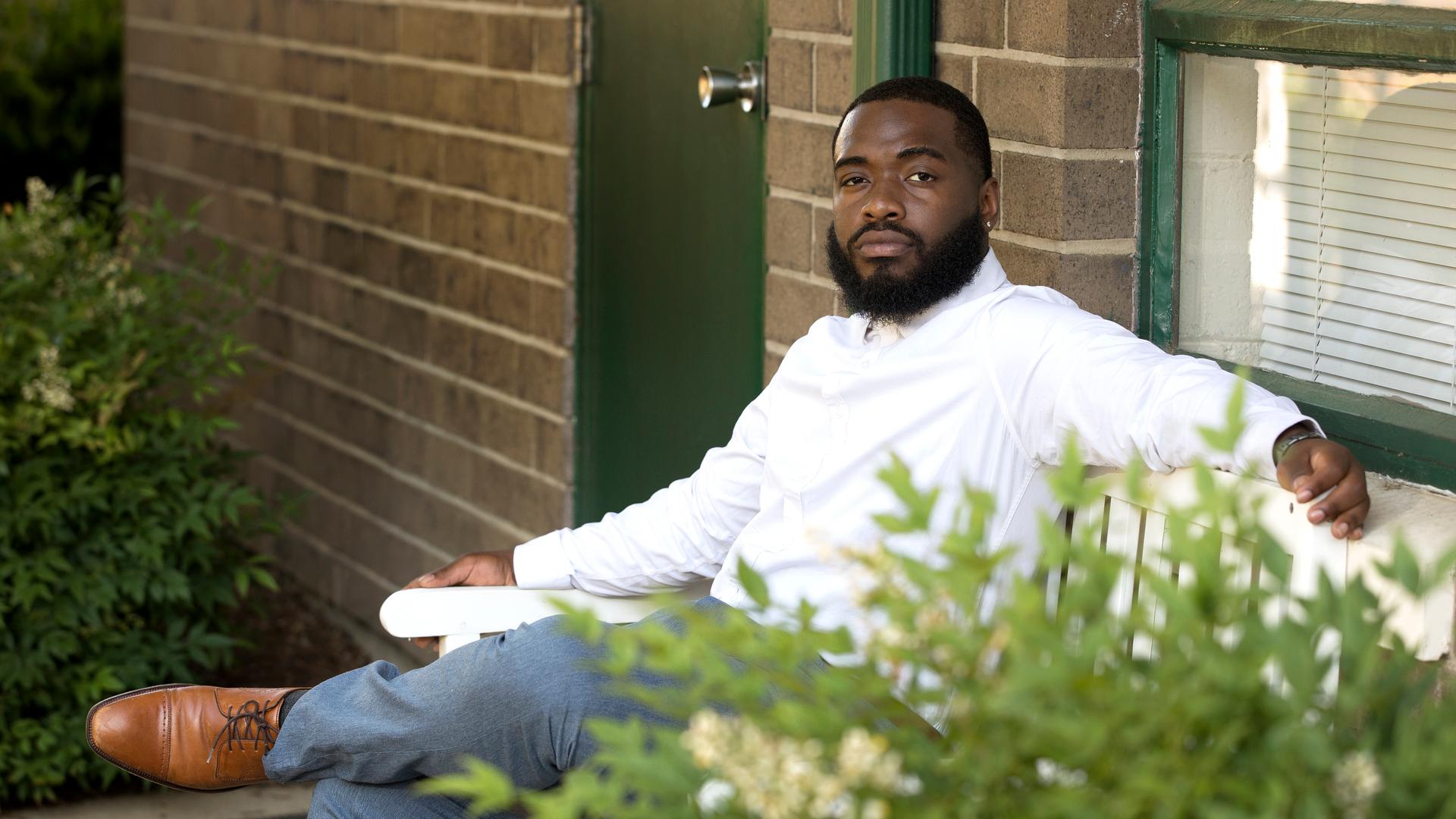
COVID-19 looms large in this election
Jacob Cuenca, 19, registered Republican in Homestead, Florida: “My feelings on Trump evolved, definitely. At the beginning, I was a supporter. Then corona happened, and he completely dropped the ball. He just completely lost me. If he wanted to have me, maybe he would apologize about COVID-19 and try his best to fix it and promise that the next four years he was going to help. But right now, I just don’t see him doing that. So many people have lost so many jobs. I don’t think a Republican president is going to help recover jobs that have been lost because of corona. And so, I feel like the Democratic Party is going to be like, ‘For four years right now, we’ll help America.’ That’s what we need.”
Adela Diaz, 19, registered Democrat and college sophomore in Tucson, Arizona, studying public health: “We need health care for all. That’s what’s holding so many people back financially. We’ve already seen who has been disproportionately affected by the pandemic: Essential workers. What kind of people are those? Those are low-income people of color. There’s a vaccine that’s supposed to come out. I don’t think Trump is going to prioritize those people to get the vaccine — and they’re the ones who are disproportionately exposed. I don’t want to see this country go through another four years of poor leadership. I want someone sane to come in. I want this pandemic to end.”
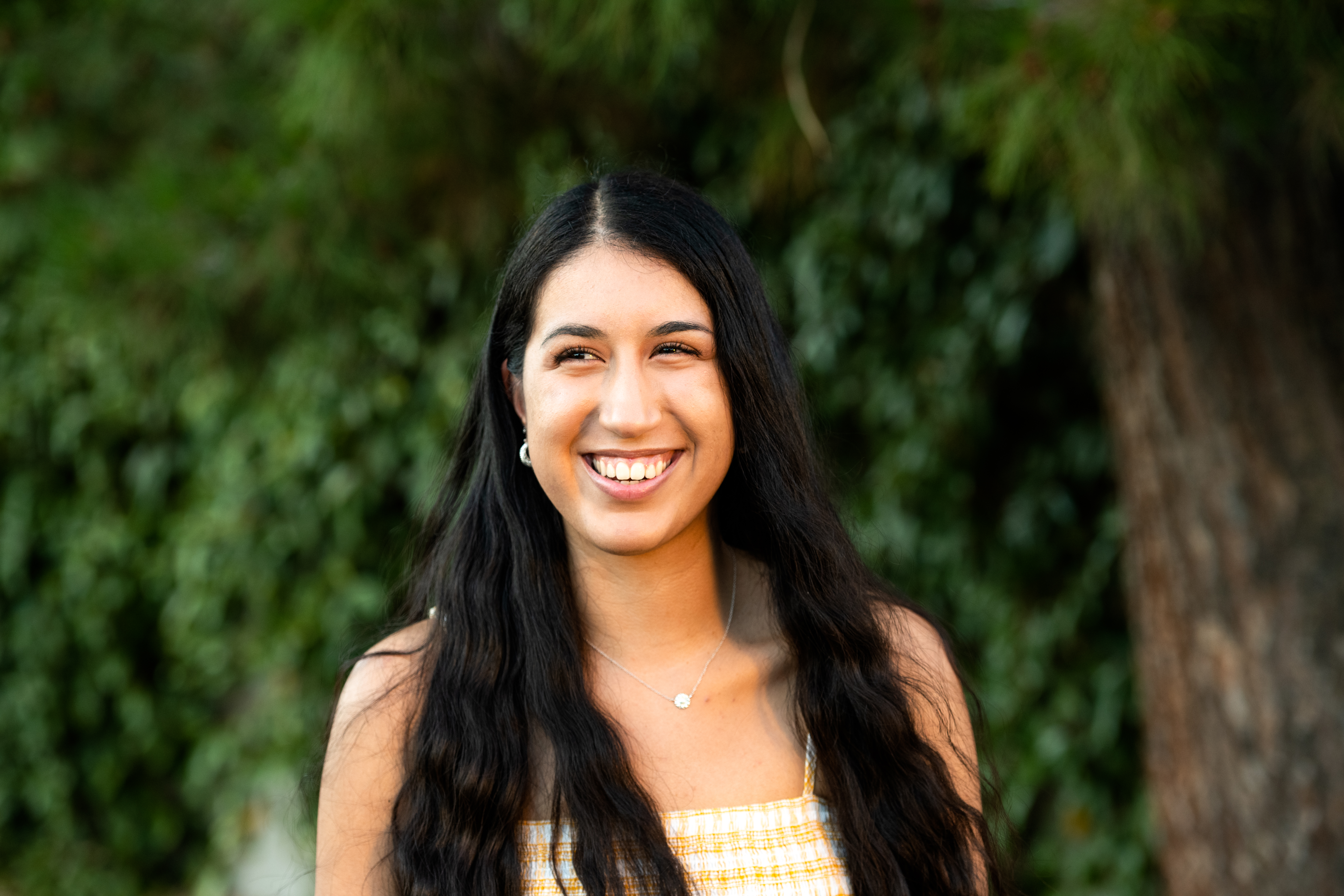
Their feelings on immigration enforcement vary
Izcan Ordaz, 18, college freshman in Keller, Texas: “When Trump made those comments about Mexicans being rapists and Mexicans stealing our jobs, my dad was very quick to point out that that was completely false. It’s definitely destroyed, absolutely shattered any relationship that my parents could have had with such a president because they felt so attacked, so minimized with attacks against immigrants and other races. They were like, ‘It feels like he’s out to get us.’”
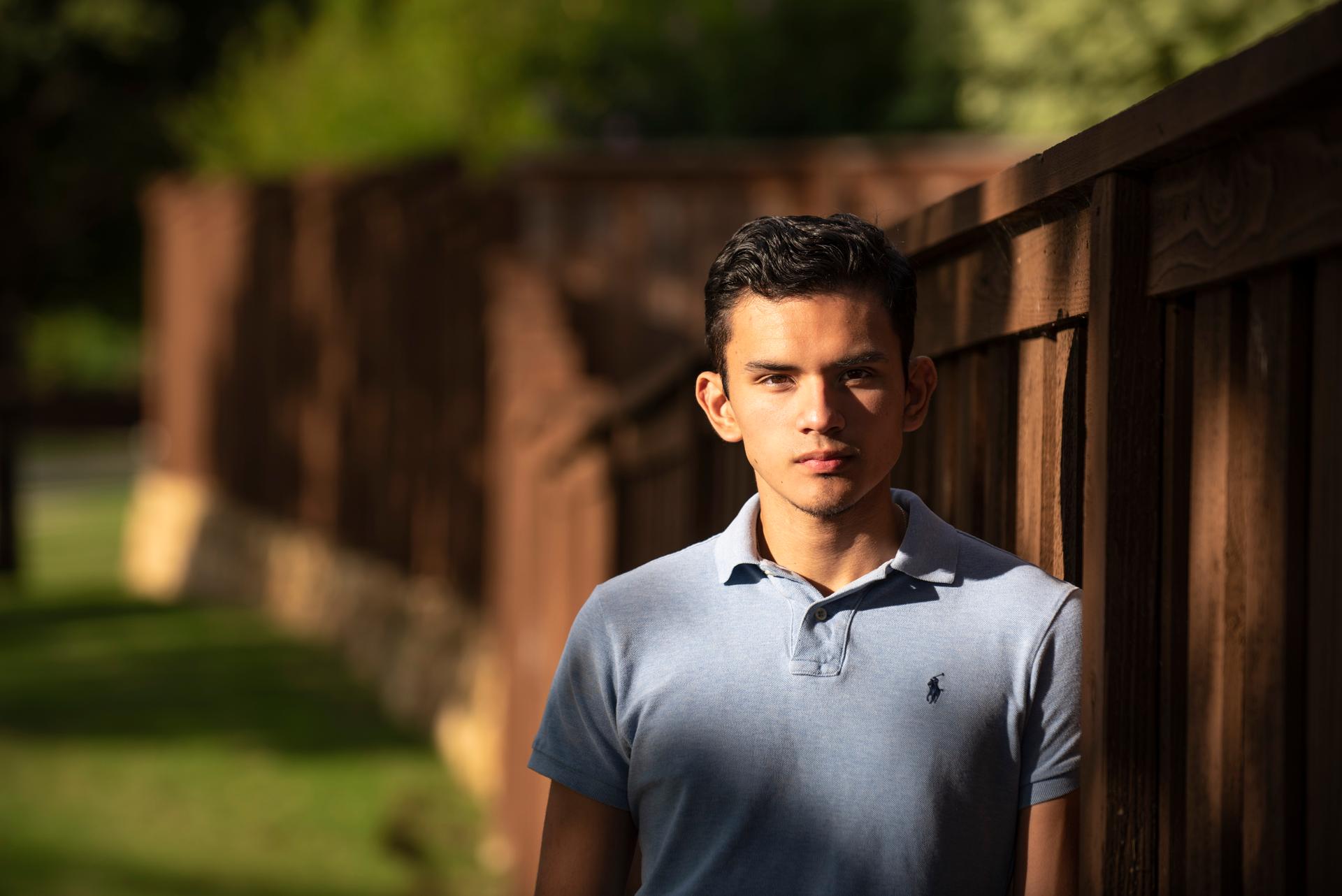
Michelle Aguilar Ramirez, 18, in South Seattle, Washington: “I believe in abolishing ICE because it is insane what is going on in those internment camps, or whatever you want to call them. They’d rather see them die in there than let them come into this country. And it’s just crazy how much loss of humanity there really is when it comes to these camps. I feel like a lot of people who are against immigrants coming into the US are thinking about the numbers: How much is it going to cost to let another immigrant in? But what I do want you to consider is the possibilities of how they can make America better than it already is. This America was stolen from Indigenous people. It was brought up and built by African Americans. And then America has been kept up by Hispanics. It doesn’t make sense that you want to bash someone for being an immigrant when everyone is obviously an immigrant here in the US. We’re on stolen land.”
Jacob Cuenca, 19, registered Republican in Homestead, Florida: “I know what Trump was doing with the immigration people — with ICE and locking up children. But at the same time, you see what [undocumented immigrants] are doing is an illegal act. And Mexican people are like, ‘Oh, you shouldn’t support it because they’re locking up your people.’ They’re not my people. I don’t know them.”
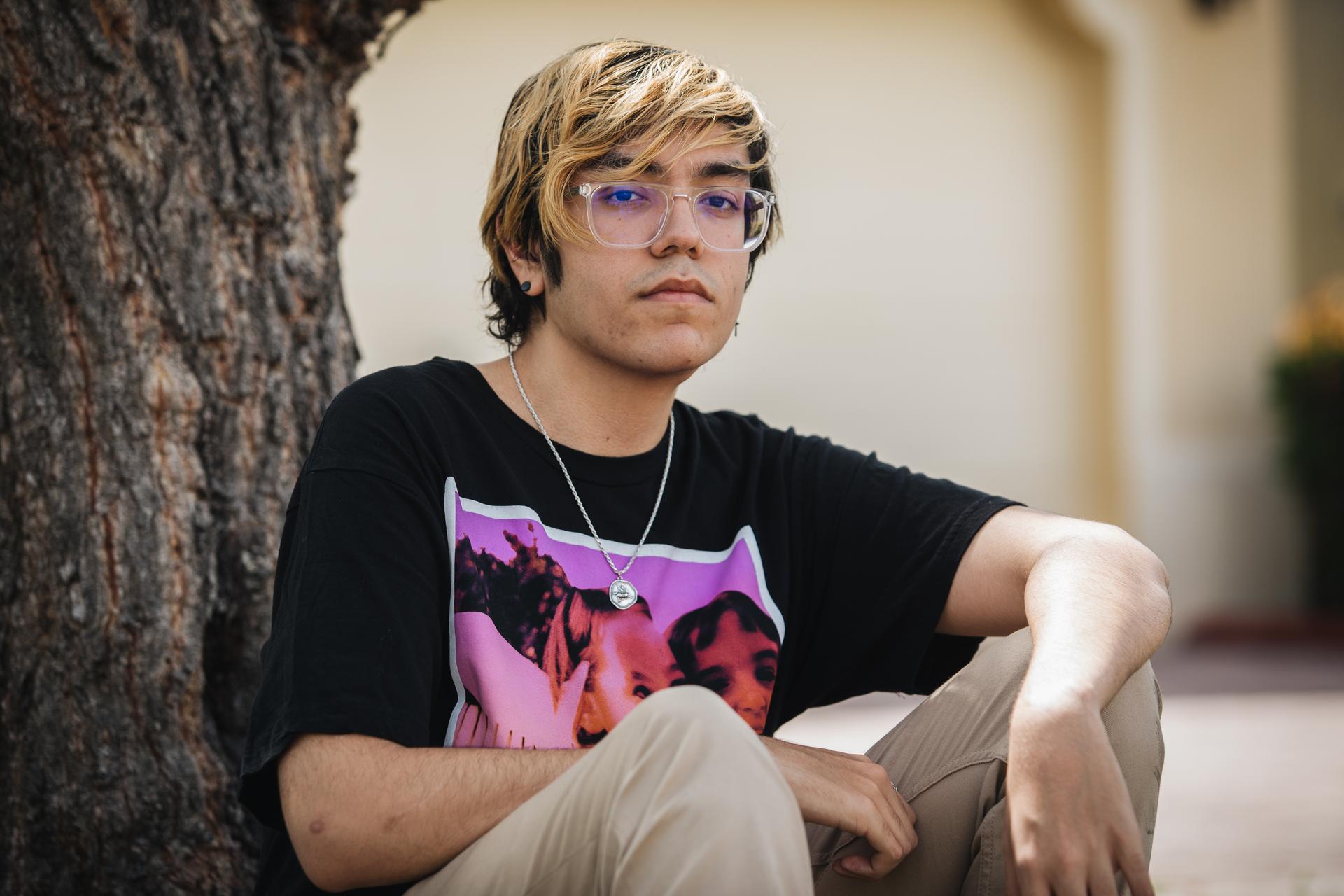
They want climate action and social justice
Michelle Aguilar Ramirez, 18, in South Seattle, Washington: “When I found out about the death of George Floyd, it really broke me because all I could think about was that being one of my friends on the ground, and all I could think about was their parents, their siblings. Black voices have been silenced for so long. And that’s why I was using my voice as a brown kid to amplify their voices — and eventually, I would get to other brown people so they would see the perspective of those who are Black.”
Marlene Herrera, 18, college freshman in San Diego: “We worry about wildfires, the air quality. There is a change that needs to happen with climate. Whether anyone wants to agree, global warming is a thing. So seeing the candidates, especially one not believing in it … In the political debate, it wasn’t very much touched upon.”
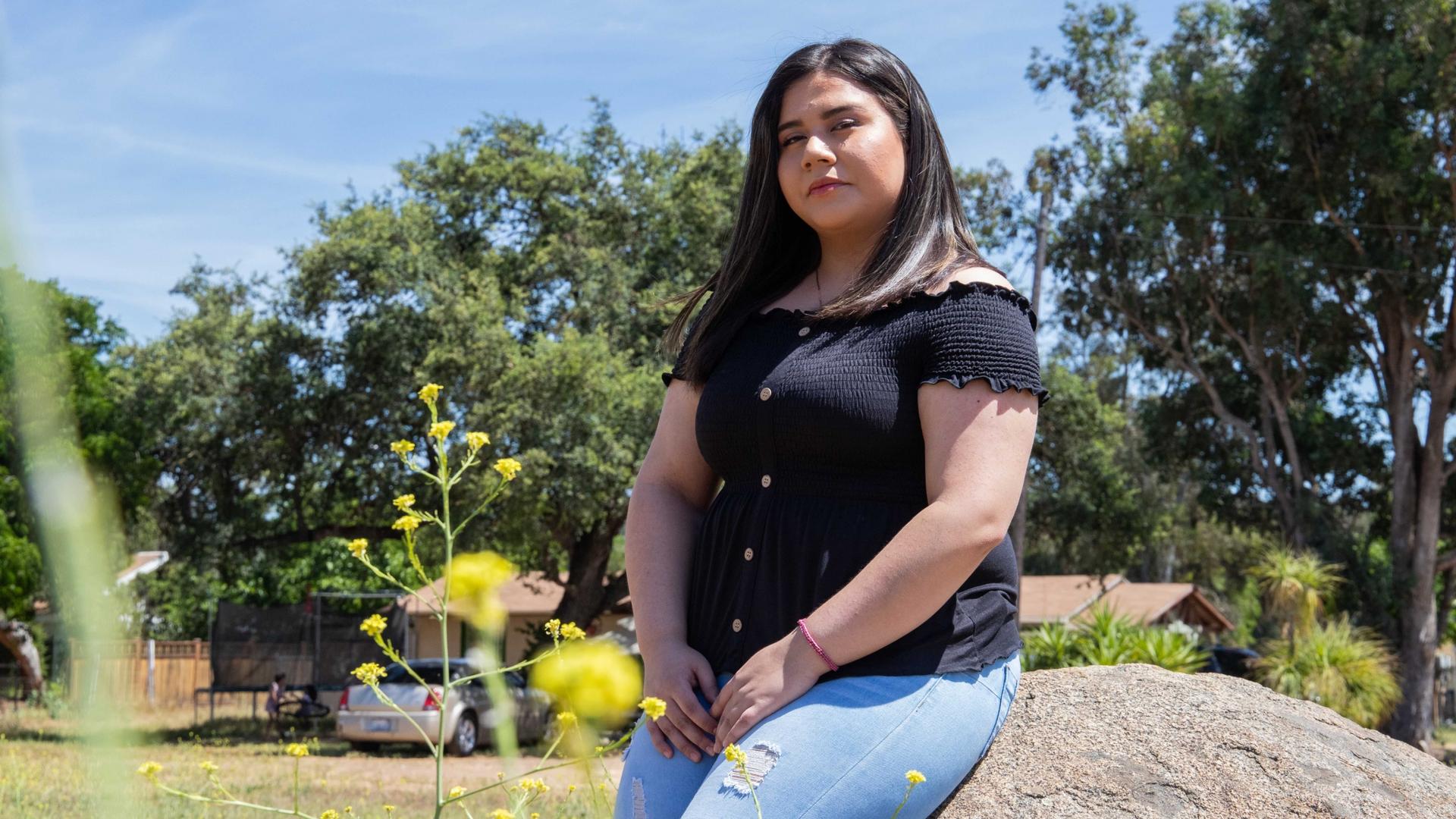
Leticia Arcila, 20, studying dental hygiene in Atlanta: “When Bernie talks about free health care and elimination of student debt and all those good things, why is that such a bad thing? Like, why is he called radical for it? I don’t understand that. Why do we have to take slow, small steps to change the country? Why can’t we just opt for something better? And that’s what I feel like is wrong with a large part of the Democratic Party.”
They’re reluctant about Biden — but more worried about Trump
Adela Diaz, 19, registered Democrat and college sophomore in Tucson, Arizona, studying public health: “I hate to be another person who’s like, ‘I’m just voting for Biden because he’s better than Trump.’ But he is so much better than Trump. And he is still like one of the most progressive administrations that will be coming into the presidential office, which is really exciting. And we’re still going to get some of the things that we want. There’s a Bernie-Biden unity plan, and he has a woman of color as his vice president. Maybe she’s not my favorite either, but she’s still a woman of color. I still get to partially vote for a woman. And I think that’s really exciting, too.”
Michelle Aguilar Ramirez, 18, in South Seattle, Washington: “I’m not specifically voting for Joe Biden because he’s the best of the best. I’m voting Joe Biden because that’s the best option America has at the moment. That’s the truth. Like, I can’t win the argument and argue with you, telling you how Biden is way better than Trump. Anyone is way better than the Republican Party.”
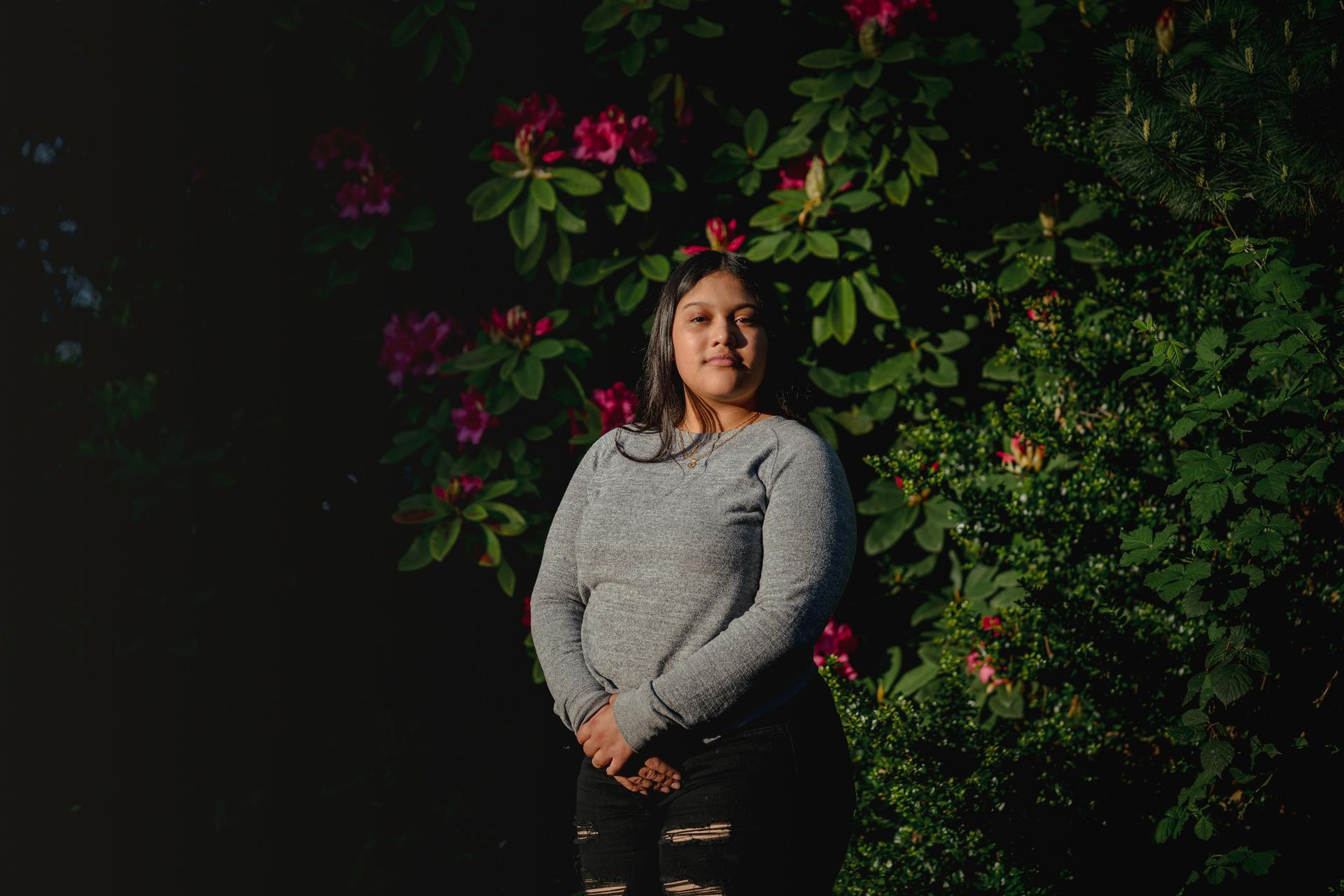
Their feelings on voting in this election vary, too
Leticia Arcila, 20, studying dental hygiene in Atlanta: “I feel empowered by voting. It’s something that, since I was a freshman, I always wanted to do. And I vote in every election we have in my community. It’s a small piece of making my voice count and one aspect where I feel my voice is being heard.”
Jacob Cuenca, 19, registered Republican in Homestead, Florida: “Maybe if I went in person, that would’ve been more exciting. But I’m just going to mail in the ballot. It’s kind of anticlimactic.”
Izcan Ordaz, 18, college freshman in Keller, Texas: “The one word that I can use to describe our politics today is polarizing. It feels like the two sides have become so divided. And so it’s hard to be a first-time voter and come into a landscape that’s so unusual, so difficult. I don’t know what kind of influence my vote will have in this election.”
Adela Diaz, 19, registered Democrat and college sophomore in Tucson, Arizona, studying public health: “It feels like more than 2016, and there was already so much on the line. But it is cool that I get to experience such a momentous election as my first one.”
These interviews have been condensed and lightly edited for clarity.
